ORGANISATION OF POSTNATAL SERVICES
5 Talks
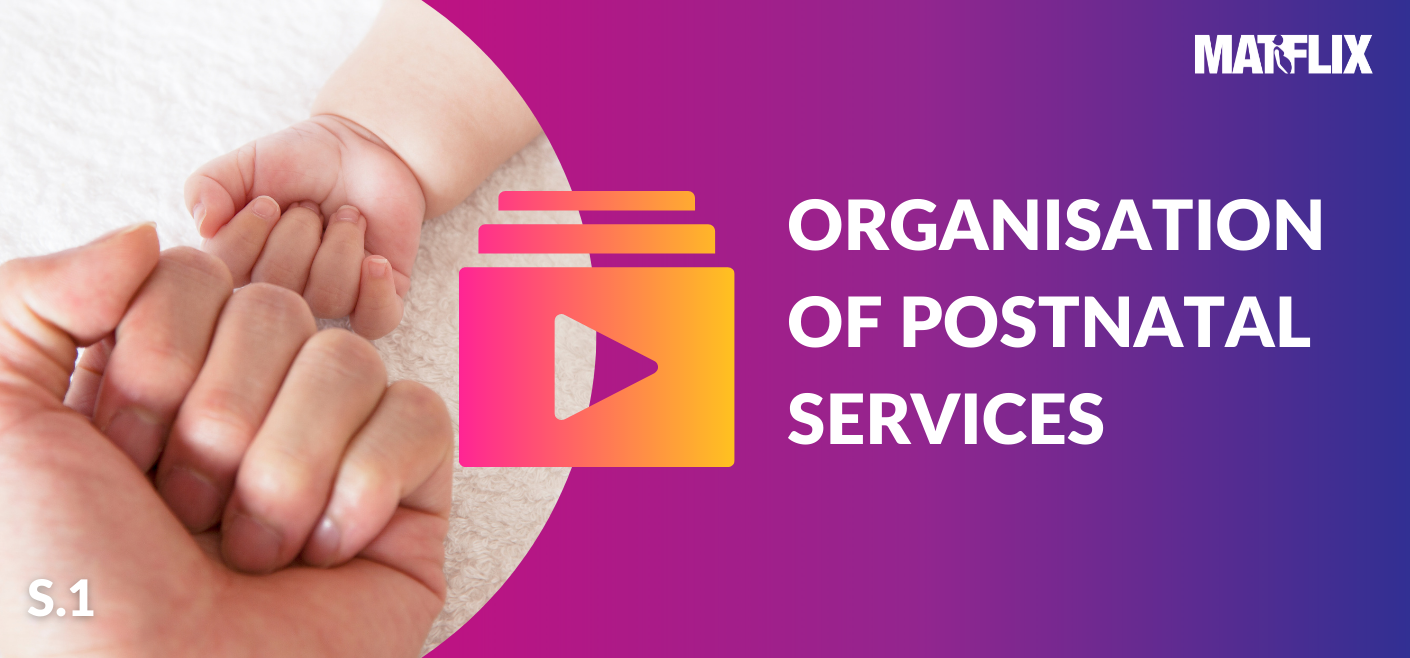
5 Talks
Postnatal services have not had as much focus over time as other aspects of maternity care. The inclusion of postnatal care in the Maternity Transformation programme means that more attention is now required. This box set includes discussions on how to address postnatal care and projects that have been undertaken to develop services and improve care for women and babies.
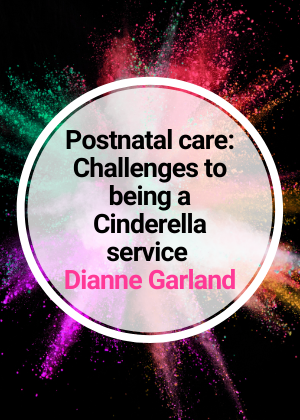
Postnatal care: Challenges to being a Cinderella service
2018 | 20 mins | Organisation of Postnatal Care
Dianne Garland, Midwifery Consultant uses the ‘Cinderella’ analogy to talk about postnatal care. She mentions how the services for maternity have changed over time and how this has had an effect on postnatal services. She looks at creative ways of providing postnatal care and questions some of the practices currently happening with suggestions for making change. She includes considering relationships within the multidisciplinary teams and suggesting others who could be included in providing care. Dianne responds to questions and discusses some of the issues raised.
Dianne Garland, Midwifery Consultant
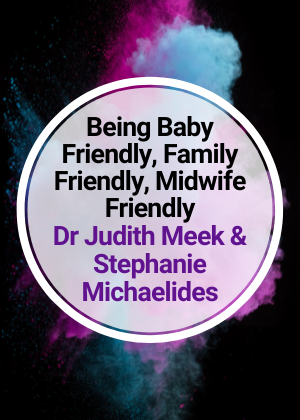
Being Baby Friendly, Family Friendly, Midwife Friendly
2016 | 31 mins | Organisation of Postnatal Care
Dr Judith Meek, Consultant Neonatologist, UCLH, and Stephanie Michaelides, Senior Lecturer, Middlesex University, discuss the Baby Friendly initiative and the current challenges of achieving the requirements within current postnatal services. Discussing the need for individualised and personalised care for the newborn they explore the different factors and complications that could affect feeding patterns. Concerns about feeding practice for preterm and small babies are raised with discussion on neonatal hypoglycaemia. Judith raises the importance of relationships with the multidisciplinary team in order to prioritise the care of babies, pointing to Baby Friendly care continuing outside the hospital.
Dr Judith Meek & Stephanie Michaelides

The first 1000 days… a unique opportunity
2015 | 22 mins | Organisation of Postnatal Care
Claire Fryer & Claire Allan, Matrons at University Hospitals Coventry and Warwickshire, talk about how the team developed and improved postnatal services. The services where they work are described along with the postnatal services that were providing a poor experience for women and babies. The changes made in the services are described which includes the pathway of the discharge process, looking at the care in labour that could be affecting postnatal recovery, the environment of the care and the increase in staff undertaking NIPE. The impact on the staff is shared and plans for further development.
Claire Allan, Modern Matron – Inpatient Services & Claire Fryer, Modern Matron – Intrapartum Care, University Hospitals Coventry and Warwickshire NHS Trust
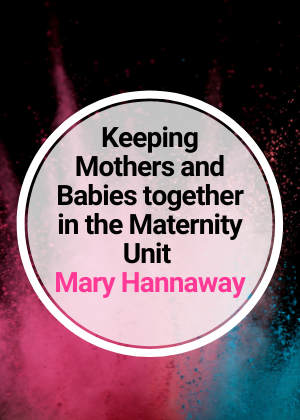
Keeping Mothers and Babies together in the Maternity Unit
2017 | 20 mins | Organisation of Postnatal Care
Mary Hannaway, Senior Charge Midwife, Queen Elizabeth University Hospital, presents a project to improve postnatal care in relation to treating infection in new babies. She describes the previous process of separation and the need to reduce the time being apart from the new mother. She highlights the different people and methodology included in introducing the change. The new process is shared and the different steps required in order for the change to be successful. This included changing equipment, creating a protocol, and effective communication between staff. Some of the teething problems are addressed. The success of the project is highlighted with audit figures and responses from parents and staff.
Mary Hannaway, Senior Charge Midwife, Labour Ward, Maternity Unit, Queen Elizabeth University Hospital NHS Greater Glasgow and Clyde
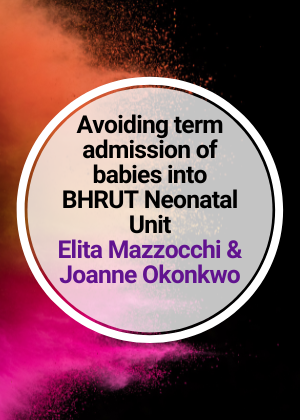
Avoiding term admission of babies into BHRUT Neonatal Unit
2019 | 25 mins | Organisation of Postnatal Care
Elita Mazzocchi, Quality Improvement and Assurance midwife & Joanne Okonkwo, Postnatal ward manager, Barking, Havering and Redbridge University Hospitals Trust, talk about how they are working to avoid unnecessary admission of term babies into the neonatal unit. They describe the local context and the national ATAIN programme to avoid term admissions. Elita and Joanne highlight the development and implementation of the project. The impact of the project on admissions is presented and the presentation includes response to questions.
Elita Mazzocchi & Joanne Okonkwo
United Kingdom and Republic of Ireland | Registration Number 8390093.
Copyright © 2024 MATFLIX